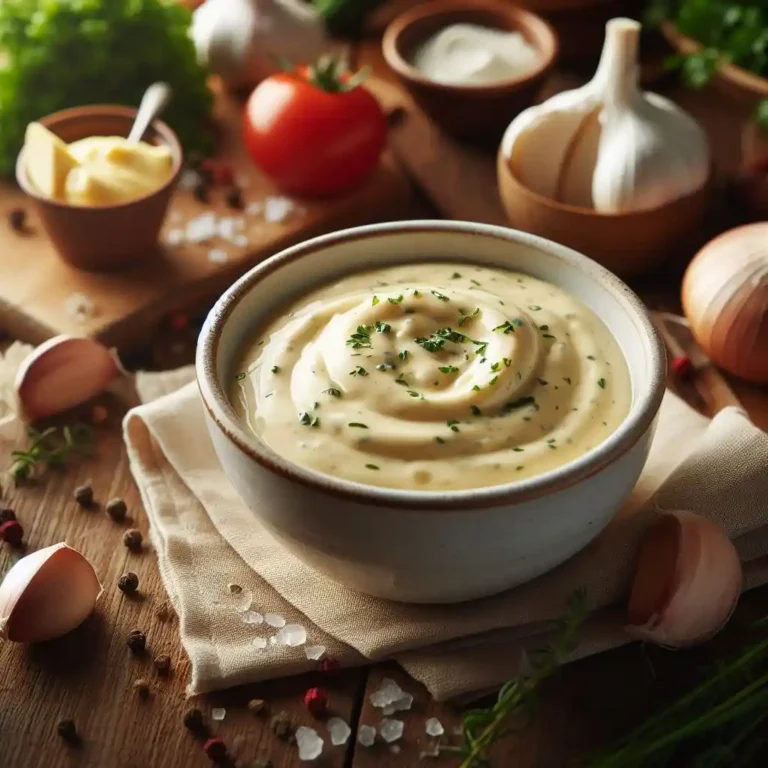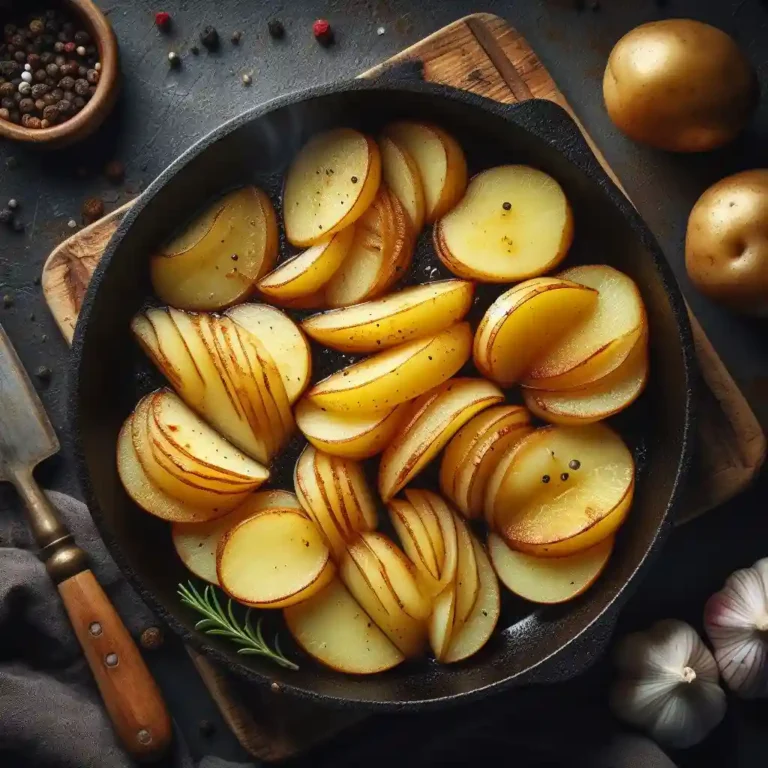How Long Can Cooked Potatoes Sit Out? Revealed
You’ve probably been there – you’ve cooked up a batch of potatoes, but then got distracted and left them sitting out on the counter. How long can they safely stay there? The answer might surprise you.
If you don’t refrigerate or reheat them promptly, you’re playing with fire – or rather, bacteria. The clock is ticking, and the longer you wait, the higher the risk of foodborne illness.
But what’s the exact timeframe you’re working with, and how can you guarantee your cooked potatoes stay safe to eat?
At a Glance
- Cooked potatoes should not be left at room temperature for more than two hours to prevent bacterial growth and foodborne illness.
- Potatoes in the “danger zone” of 40°F to 140°F (4°C to 60°C) are susceptible to rapid bacterial growth, making refrigeration or freezing crucial.
- Refrigeration or freezing cooked potatoes prevents the risk of foodborne illness, and refrigerated potatoes should be consumed within 3 to 4 days.
- Visible signs of mold or mildew, unusual growth, discoloration, or an unpleasant smell indicate spoiled cooked potatoes that should be discarded.
- Cooked potatoes should be reheated to an internal temperature of at least 165°F (74°C) to ensure food safety and quality.

Understanding Potato Safety Guidelines
When handling cooked potatoes, it’s essential to understand the safety guidelines to avoid foodborne illnesses.
You’re likely aware that potatoes are a staple in many cuisines, but did you know that different potato varieties and cooking methods can impact their safety?
For instance, high-moisture potatoes like Yukon Golds and red potatoes are more prone to bacterial growth than low-moisture varieties like Russets.
Similarly, cooking methods like boiling and steaming can create an ideal environment for bacterial growth.
When cooking potatoes, you should aim to heat them to an internal temperature of at least 165°F (74°C) to kill off bacteria.
Additionally, make sure to handle and store cooked potatoes in a clean environment to prevent cross-contamination.
It’s also pivotal to refrigerate or freeze cooked potatoes promptly to prevent bacterial growth.
By following these guidelines, you can enjoy your favorite potato dishes while minimizing the risk of foodborne illnesses.
Room Temperature Storage Timeframe
You’ve cooked your potatoes to perfection, but now it’s time to ponder how long you can safely leave them at room temperature.
When it comes to cooked potatoes, it’s crucial to prioritize food safety to avoid potential health risks. At room temperature, cooked potatoes are susceptible to potato oxidation, which can lead to an unappealing grayish color and an unpleasant flavor.
More concerning, however, is the rapid bacterial growth that can occur. Bacteria like Staphylococcus aureus, Clostridium perfringens, and Salmonella can multiply rapidly on cooked potatoes, especially when they’re left in the “danger zone” of 40°F to 140°F (4°C to 60°C) for too long.
In general, it’s recommended to discard cooked potatoes that have been at room temperature for more than two hours. If you’re not planning to eat them immediately, it’s vital to refrigerate or freeze them to prevent the risk of foodborne illness.
Refrigeration and Reheating Options
By refrigerating cooked potatoes within two hours of cooking, you’ll substantially reduce the risk of bacterial growth and foodborne illness.
This is especially important if you’re not planning to eat them immediately. When refrigerating, make sure to store the potatoes in a shallow, airtight container and keep them at a consistent refrigerator temperature of 40°F (4°C) or below.
If you need to transport cooked potatoes, consider using cooler alternatives with thermal retention, such as insulated bags or containers with ice packs.
This will help maintain a safe temperature and prevent bacterial growth. When reheating, certify the potatoes reach an internal temperature of 165°F (74°C) to eliminate any potential bacteria.
Reheat them to this temperature within 3 to 4 days of refrigeration for peak safety and quality. By following these guidelines, you’ll be able to enjoy your cooked potatoes while minimizing the risk of foodborne illness.
Freezing Cooked Potatoes Safely
Freezing cooked potatoes can be a convenient and safe way to preserve them for longer periods.
When you freeze cooked potatoes, you’re basically putting them in a state of suspended animation, where microbial growth and enzymatic activity come to a near-halt. This means you can enjoy your cooked potatoes for months to come, as long as you follow the proper freezing procedures.
To freeze cooked potatoes safely, you must cool them down to room temperature within two hours of cooking.
Then, transfer them to an airtight container or freezer bag, making sure to remove as much air as possible before sealing. Flash freezing, which involves quickly freezing the potatoes to a temperature of -30°C or lower, helps preserve their texture and nutritional value. Cryogenic preservation, which uses extremely low temperatures to freeze the potatoes, is another option, although it requires specialized equipment.
When you’re ready to eat your frozen cooked potatoes, simply thaw them overnight in the refrigerator or reheat them in the microwave or oven.
Remember to always check the potatoes for any signs of spoilage before consuming them, and enjoy your safely frozen and preserved cooked potatoes!
Identifying Spoiled Cooked Potatoes
Most cooked potatoes will eventually spoil if left at room temperature for too long, and it’s crucial to identify the signs of spoilage to avoid foodborne illness.
You can’t always trust your taste buds to detect spoilage, so it’s imperative to rely on visual and olfactory cues.
When checking cooked potatoes for spoilage, start by looking for any visible signs of mold or mildew.
If you notice any unusual growth or discoloration, it’s best to err on the side of caution and discard them.
Next, take a whiff – spoiled cooked potatoes often give off a strong, unpleasant, or sour smell.
If you catch an off smell, it’s likely the potatoes have gone bad.
FAQs
Can Cooked Potatoes Be Left Out Overnight for Breakfast?
When you’re in a morning rush, it’s tempting to leave cooked potatoes out overnight for breakfast, but don’t risk it – even if you’re short on time, it’s not worth the foodborne illness risk; instead, prep them in advance and refrigerate or freeze for a safe, hassle-free morning.
Can I Eat Cooked Potatoes That Have Turned Gray?
You’re venturing into the gray area of food safety, and it’s wise to exercise caution. If your cooked potatoes have turned gray, it’s best not to eat them, as this color change can indicate the presence of toxic compounds, putting your health at risk.
Do Cooked Potatoes Go Bad Faster in Airtight Containers?
When you store cooked potatoes in airtight containers, you’re actually accelerating spoilage due to limited oxygen exposure. You’re creating an ideal environment for anaerobic bacteria to thrive, making them go bad faster than if you’d stored them in a breathable container.
Can I Freeze Cooked Potatoes in a Glass Jar?
You can safely freeze cooked potatoes in a glass jar, but guarantee it’s freezer-safe and airtight to prevent freezer burn. Glass compatibility is key; choose a jar specifically designed for freezing to maintain quality and prevent breakage.
Can I Reheat Cooked Potatoes Multiple Times Safely?
When you reheat cooked potatoes multiple times, you’re taking a risk; improper temperature control can lead to bacterial growth, so guarantee you’re reheating to 165°F (74°C) each time to avoid potential foodborne illnesses, and always check for signs of spoilage.










DK Jacks is a passionate food enthusiast, recipe developer, and culinary explorer. With a love for both traditional and innovative flavors, DK brings a fresh perspective to the kitchen. When not experimenting with new ingredients, you’ll find DK capturing food moments through the lens or sharing cooking tips with fellow foodies.🍽️📸✨






